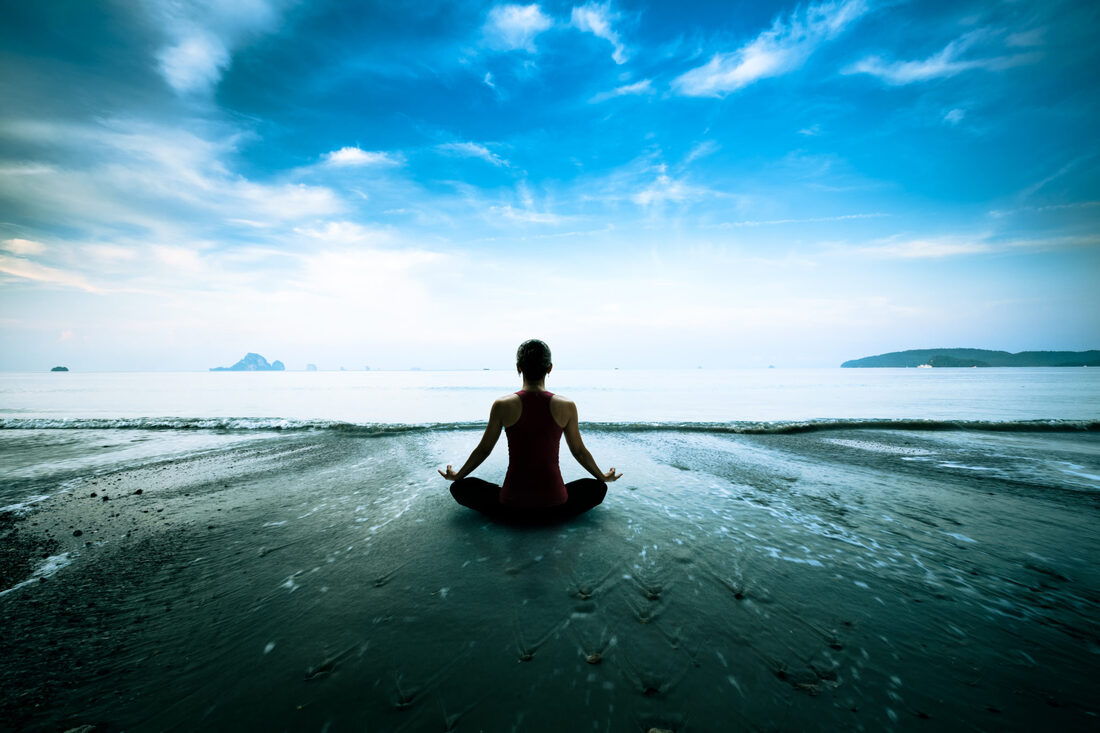There are many amazing benefits that come along with consistent meditation practice, and a better focus is witnessed among many meditation practitioners. This is not about religion, it is just a focus exercise that anyone can try. Now is the ideal time to start learning how this helps in your daily life.
For beginners, I would advice you to try following a guided meditation. Trying out meditation on your own may make you sleepy and feeling bored because you don’t really know what you are doing. Sitting still and focusing on the present moment is a new experience when you’re just starting out.
Guided meditations are essentially meditations where a voice guides you through the entire process. There are many different apps (such as Headspace, Omvana and Stop, Breathe & Think) that provide hundreds of different guided meditations, all with a specific purpose and time length. Or you simply type in ‘guided meditation on YouTube or Spotify.
For beginners, I would advice you to try following a guided meditation. Trying out meditation on your own may make you sleepy and feeling bored because you don’t really know what you are doing. Sitting still and focusing on the present moment is a new experience when you’re just starting out.
Guided meditations are essentially meditations where a voice guides you through the entire process. There are many different apps (such as Headspace, Omvana and Stop, Breathe & Think) that provide hundreds of different guided meditations, all with a specific purpose and time length. Or you simply type in ‘guided meditation on YouTube or Spotify.
After choosing your guided meditation or if you choose to sit and meditate for some quiet "me" time, I’ll quickly go through some guidelines that help you meditate on your own
Step 1: Set a timer for 10–20 minutes
This is a comfortable time frame to meditate if you want it to have a real impact on your concentration ability. For beginners, you can also try a 5–10 minutes session first to get used to the habit.
Step 2: Sit with your back straight
If you’re sloughed, chances are you might fall asleep or feel some pains and aches which will get you out of the present moment and can lead to more thoughts in your mind.
Step 1: Set a timer for 10–20 minutes
This is a comfortable time frame to meditate if you want it to have a real impact on your concentration ability. For beginners, you can also try a 5–10 minutes session first to get used to the habit.
Step 2: Sit with your back straight
If you’re sloughed, chances are you might fall asleep or feel some pains and aches which will get you out of the present moment and can lead to more thoughts in your mind.
Step 3: Make sure your arms aren’t folded or closed
An open posture usually leads to a calmer meditation.
Step 4: Close your eyes and focus on your breath
This will help you calm down faster and become less distracted. By putting all your focus and concentrate on your breath, you’ll start to calm down your mind. Simply follow your breath as you inhale and exhale. Try to focus on it for as long as you can you'll experience silence in your busy mind.
Step 5: Don’t get frustrated when thoughts pop up or when it’s noisy outside
Thoughts will definitely pop up in your mind during your meditation, maybe a lot more than you’d expect. This is completely normal, as your brain is simply designed to keep thinking. When thoughts pop up during your meditation, simply be aware of them and don’t get frustrated. Just calmly bring your attention back to your breath to help you get back to the present moment again.
Sometimes, your mind need this moment to process past experiences. This may be a good thing because now you’ll have less mental clutter and more available space for focusing and thinking clearly. The real ‘training’ is to stay calm, focused and present even when your external environment isn’t.
Step 6: Repeat Daily
Try to meditate daily, preferably in the morning when you just woke up. Do not look at your computer or mobile phone when you wake up, just meditate first. This way, you’ll start the day with a clear, positive calm and focussed mind — and you’ll be ready to face your day ahead.
It’s important to note that the benefits of meditation may not necessarily be noticeable right after or during your meditation (although they very well can be!). Amazing effects will be noticed only after a few weeks of consistent meditation daily. Trust me, you'll only regret not starting this earlier.
An open posture usually leads to a calmer meditation.
Step 4: Close your eyes and focus on your breath
This will help you calm down faster and become less distracted. By putting all your focus and concentrate on your breath, you’ll start to calm down your mind. Simply follow your breath as you inhale and exhale. Try to focus on it for as long as you can you'll experience silence in your busy mind.
Step 5: Don’t get frustrated when thoughts pop up or when it’s noisy outside
Thoughts will definitely pop up in your mind during your meditation, maybe a lot more than you’d expect. This is completely normal, as your brain is simply designed to keep thinking. When thoughts pop up during your meditation, simply be aware of them and don’t get frustrated. Just calmly bring your attention back to your breath to help you get back to the present moment again.
Sometimes, your mind need this moment to process past experiences. This may be a good thing because now you’ll have less mental clutter and more available space for focusing and thinking clearly. The real ‘training’ is to stay calm, focused and present even when your external environment isn’t.
Step 6: Repeat Daily
Try to meditate daily, preferably in the morning when you just woke up. Do not look at your computer or mobile phone when you wake up, just meditate first. This way, you’ll start the day with a clear, positive calm and focussed mind — and you’ll be ready to face your day ahead.
It’s important to note that the benefits of meditation may not necessarily be noticeable right after or during your meditation (although they very well can be!). Amazing effects will be noticed only after a few weeks of consistent meditation daily. Trust me, you'll only regret not starting this earlier.



 RSS Feed
RSS Feed
